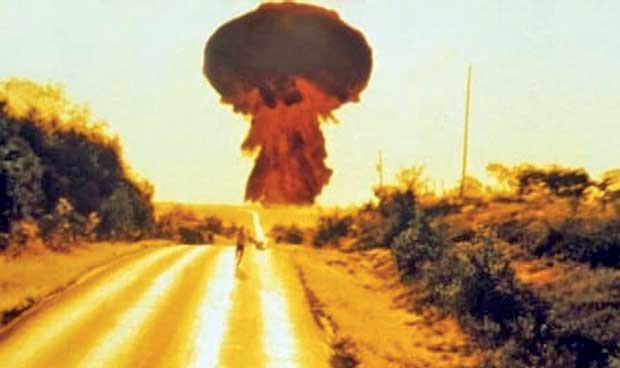02 Aug 2017 - {{hitsCtrl.values.hits}}

(c) 2017,
The Washington Post ·
The United States and Russia have descended to a new low point in relations, with waves of sanctions and escalating retaliation. Twenty-five years after the Cold War ended, relations are back in a deep freeze. What happened?
The current tension did not come about because the United States suddenly wanted its old adversary back. What happened is a response to bad choices taken by President Vladimir Putin of Russia. These choices were made deliberately in Moscow, perhaps for Putin’s own reasons of domestic politics and foreign policy. They are the main reason for the tension that now exists.
Putin chose to seize Crimea from Ukraine, annex it and then instigate an armed insurrection in southeastern Ukraine in 2014, violating all post-World War II norms of national sovereignty. The war in the Donbasregion was a tactic by Putin to inject further instability into Ukraine after Ukraine’s president, Putin ally Viktor Yanukovych, fled his palace in the face of mass protest. Putin was aggrieved at Ukraine’s decision to sign a pact with the European Union, but Ukraine is not a vassal of Russia, and Putin’s claims to a sphere of influence are untenable. The sanctions imposed by the United States and Europe were a response to Putin’s ill-considered impulse to use violence as a tool of intimidation and coercion.
Another poor and deliberate choice was to interfere with the U.S. election campaign. Putin cannot escape responsibility for Russian attempts to damage the candidacy of former secretary of state Hillary Clinton and, perhaps, tilt the election to Donald Trump. We know that Putin seethed over Clinton’s outspoken support for the principle of free speech during the 2011-2013 protests against him, but he is altogether wrong to think the United States engineered the unrest. Putin and his aides cynically deny they attempted to interfere in the U.S. election, but surely they know exactly what occurred and how. The sanctions imposed by President Barack Obama last December and recently tightened by Congress did not appear out of thin air. They are a logical response to Putin’s attempt to meddle in American democracy.
Have these choices had positive consequences for Russia or global stability? Putin behaves as though he believes Russia is walking tall. Perhaps in his zero-sum world, he takes satisfaction in the chaos rippling through U.S. politics, but his tactics have backfired badly in both Ukraine and the United States. And Putin’s choices have been costly for Russia, its economy and its people.
We have long believed that U.S.-Russian engagement is essential to avert miscalculation, and it remains important for both Washington and Moscow to keep talking. But Putin should not expect the West to suddenly forgive or forget his bad choices. He would be wiser to deal with the underlying source of tension than to sit around plotting new ways to escalate it.
16 Nov 2024 1 hours ago
16 Nov 2024 1 hours ago
16 Nov 2024 3 hours ago
16 Nov 2024 3 hours ago
16 Nov 2024 3 hours ago